“Success is not the key to happiness. Happiness is the key to success. If you love what you are doing, you will be successful.” —Albert Schweitzer
What is the Albert Schweitzer Fellowship?
The Albert Schweitzer Fellowship® is more than a fellowship—it’s a hands-on, immersive opportunity to make a lasting impact in underserved communities while becoming the kind of leader our world needs.
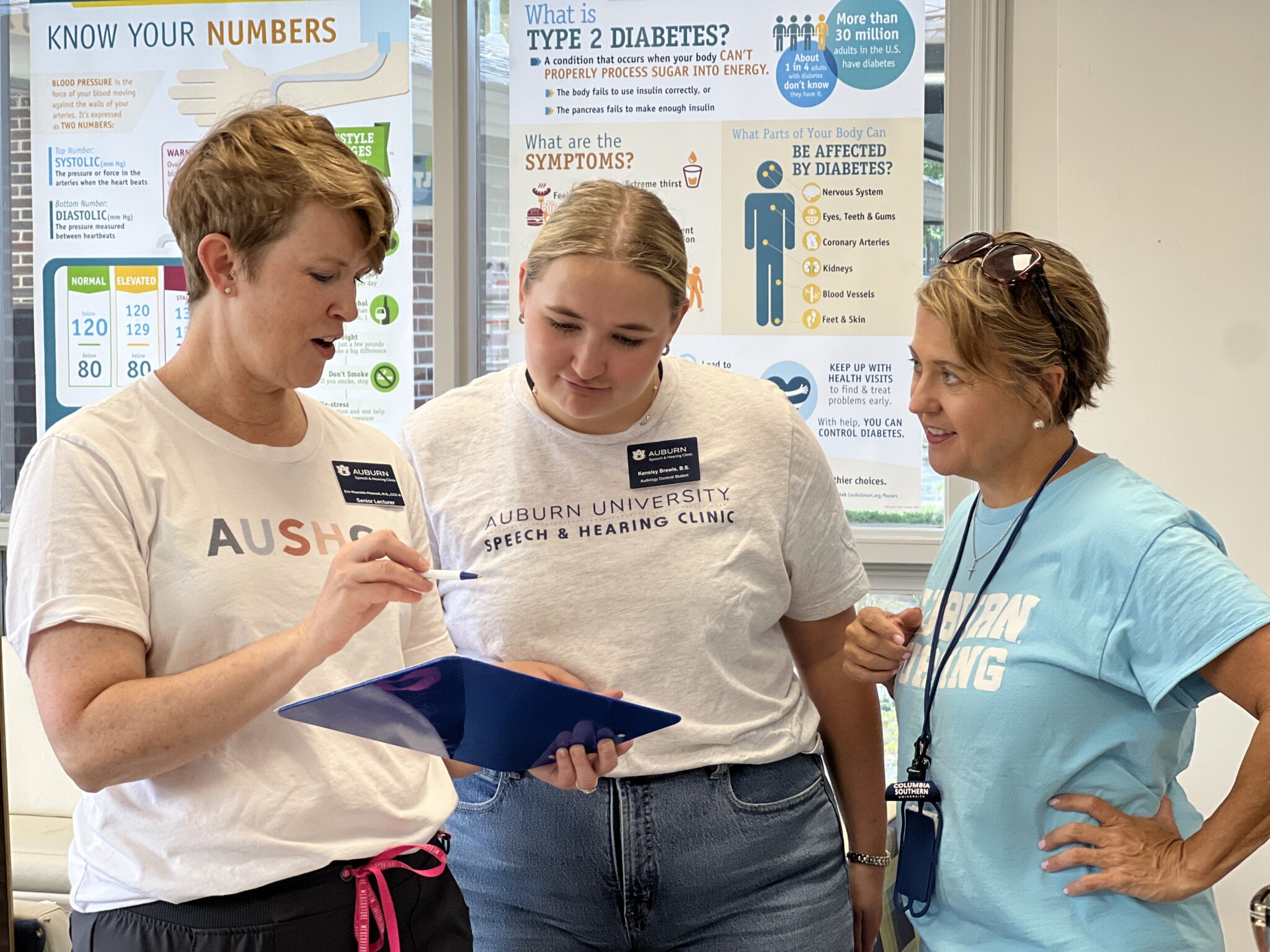
Apply your academic training to solve real-world problems with creativity and compassion
Work collaboratively across disciplines and with community organizations
Engage communities with cultural humility and mutual respect
Understand the broader social and environmental factors that shape health
Build the resilience needed to lead and serve long-term
Contribute to sustainable change—not just during the Fellowship, but far beyond
What Sets the Albert Schweitzer Fellowship Apart?
Community Driven Projects
Fellows design and lead impactful projects in partnership with local nonprofits, addressing real and pressing community needs.
Interdisciplinary Collaboration
Students from diverse graduate and professional programs work together, learning from one another’s expertise and perspectives.
Hands-On Leadership Training
Practical skill-building in advocacy, cultural humility, project development, evaluation, nonprofit leadership, and more.
Personalized Mentorship
Guidance from experienced professionals and alumni throughout the Fellowship year.
Lasting Impact
Many projects continue beyond the Fellowship, creating sustainable change in underserved communities.
Network For Life
Fellows join a supportive, national network of changemakers committed to advancing health equity.
Focus On Equity
Projects intentionally address barriers to care and social determinants of health in marginalized populations.
Local + Statewide Reach
Service impacts both Birmingham and communities across Alabama.
How We Define Health
Schweitzer Fellows focus on health as defined by the World Health Organization (WHO): a state of complete physical, mental and social well-being and not merely the absence of disease or infirmity. Rooted in this holistic understanding of health, Schweitzer projects address not only clinical health issues, but also the social determinants of health—defined by the WHO as the conditions in which people are born, grow, live, work and age, and which are mostly responsible for health inequities.
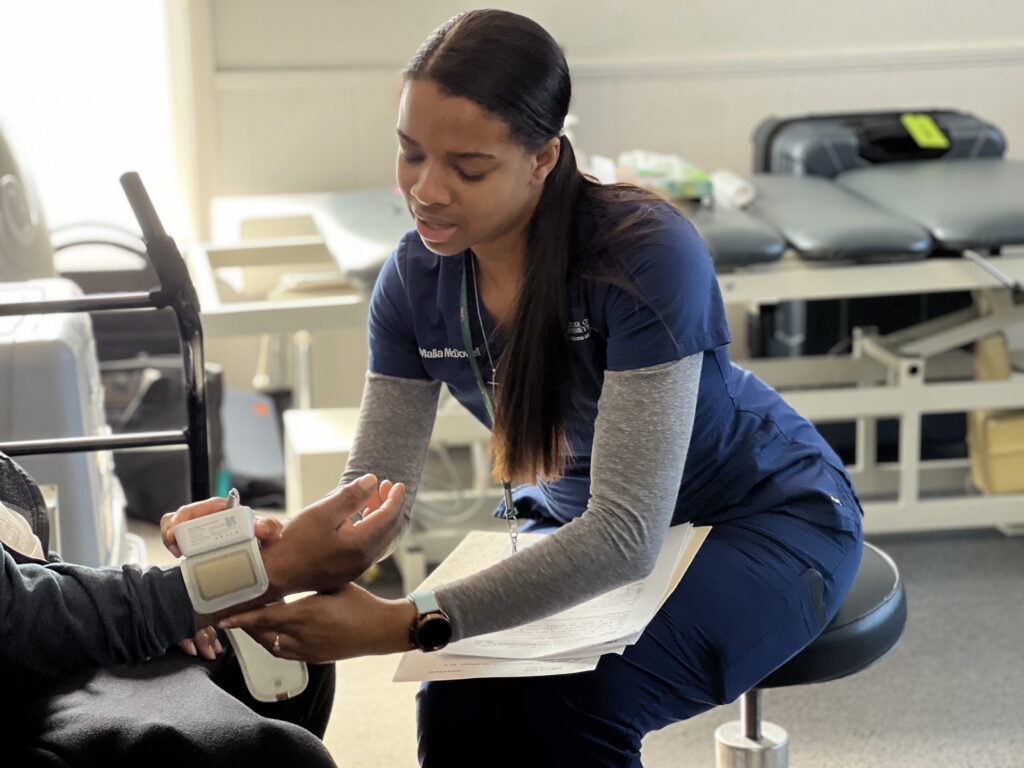
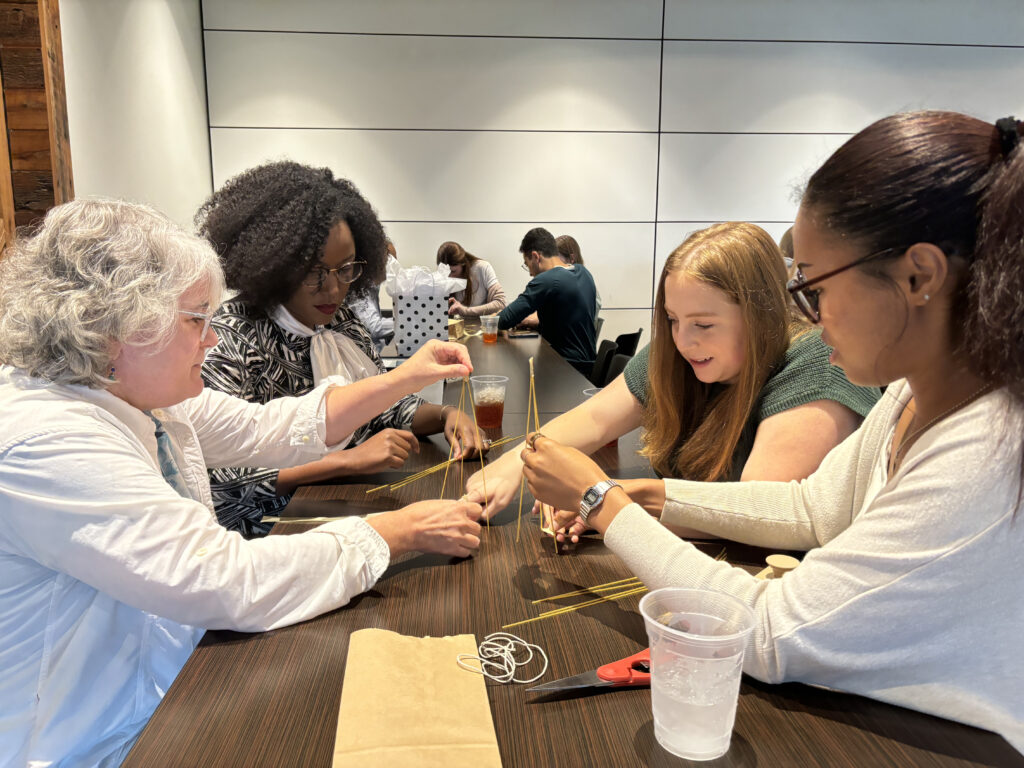
Fellowship Project Description
As a Fellow, you’ll partner with a local community agency to create and carry out a project that delivers direct service to an underserved population—reducing health disparities and improving quality of life. On your application, you’ll list an Academic Mentor, propose two possible project areas, and suggest one or more potential community partners. During your first month, we’ll help you refine your focus, connect with community leaders, and match your passions and skills to a meaningful need.
Your project will:
- Address a community-defined need aligned with national and local health priorities (e.g., Healthy People 2030).
- Create lasting value for the community and partnering agency.
- Provide hands-on experience and professional mentorship.
You may adapt an evidence-based strategy or develop a completely original project.
Note: Research, fundraising, and policy-only projects are not eligible for the Schweitzer Fellowship.
Check Your Eligibility and Apply
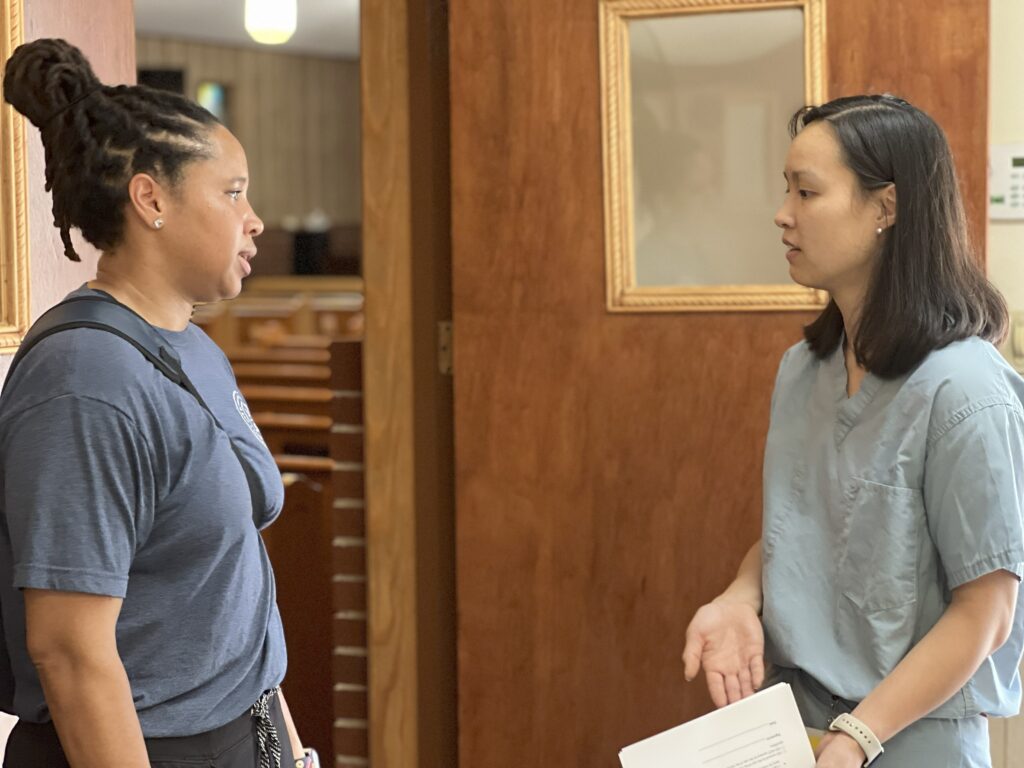
We welcome applications from:
- Graduate and professional students enrolled at Alabama-based universities.
- Students in health-related fields and other disciplines (public health, social work, education, counseling, nutrition sciences, etc.) with an interest in health equity.
- Individuals able to commit to the full 15-month Fellowship (February 2026-April 2027)
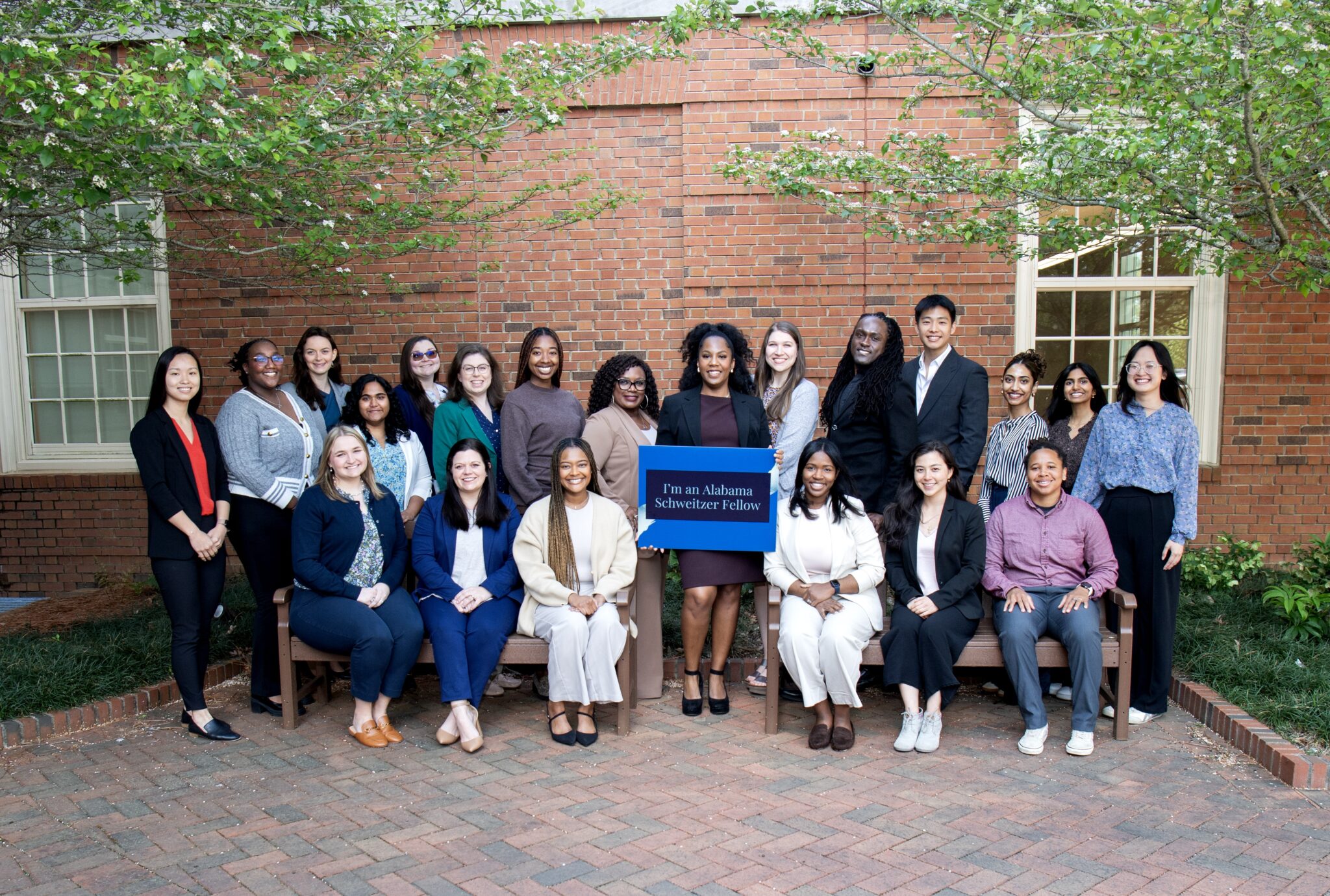
Get a head start and make your application shine. Take time to explore what the Fellowship offers, learn from those who’ve gone before you, and connect with staff to make sure your ideas are ready to take shape.
- Attend an information session to learn about the Fellowship’s expectations and opportunities.
- Review past projects to get inspired and see the kinds of impact Fellows create.
- Speak with program staff to discuss your project ideas and ensure they align with program goals.
Participation in the Fellowship comes with specific commitments designed to maximize your impact and growth.
- Orientation Retreat – Mandatory attendance at the in-person Welcome Workshop (Feb. 21, 2026) and in-person Orientation (April 11–12, 2026). Applicants unable to attend should not apply.
- Service Project – Partner with a local community agency to design and implement a 200-hour* service project (separate from any course requirements). At least half the hours must be direct service; the rest may include planning, research, and admin work. Receive guidance from a site mentor, academic mentor, and the Executive Director. *Paired projects are allowed with adjusted hours and stipends.
- Reports & Evaluation – Submit monthly reports/reflections, a final project presentation, and remarks for the Celebration of Service. Complete pre- and post-program surveys; site mentors complete a final evaluation.
- Bi-monthly Training – Attend in-person leadership workshops, skill-building sessions, and networking opportunities. Fellows attending less than 80% of meetings will receive a small stipend deduction.
- Recruitment Support – In the fall, assist with info sessions and presentations to help recruit future Fellows. Also, serve as “hosts” for virtual interview sessions.
- Stipend – Receive up to $2,500 (distributed in four installments) plus up to $100 for project expenses.
- Celebration of Service – Introduced at the April 11, 2026 event; return the following April to present project outcomes.
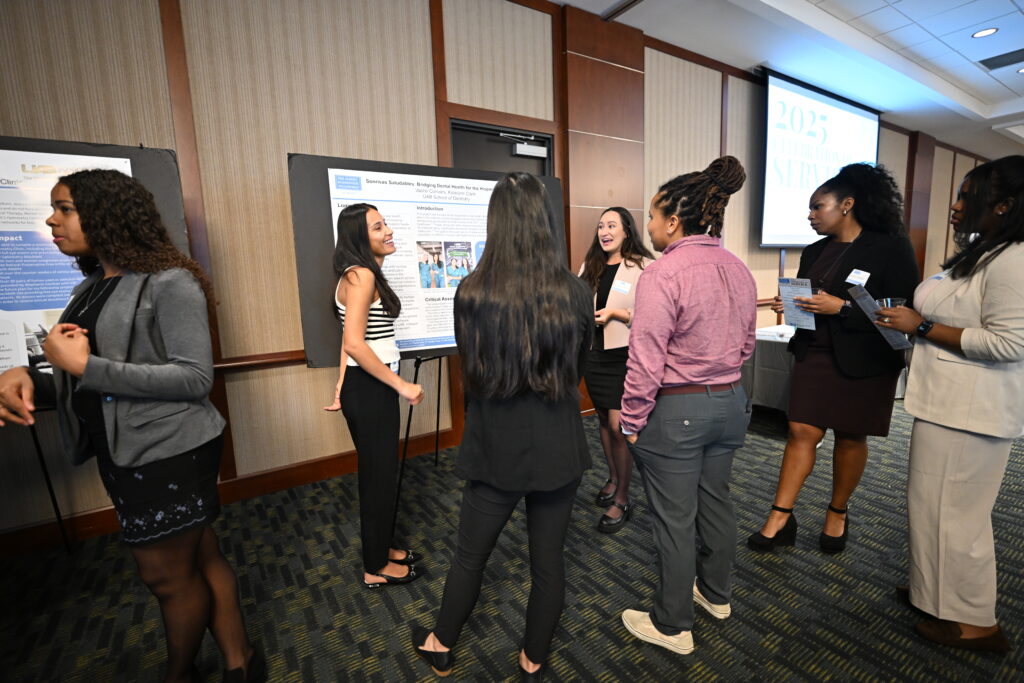
- Online application
- Resume or CV, limited to two pages, listing applicable education, service, and leadership experiences
- Contact information for two references, including a faculty member who will serve as your faculty mentor
- A background check will also be conducted once a Fellowship offer has been accepted.
Application Timeline
September 1, 2025: The online application portal opens and remains open until January 26, 2026.
September-January: Virtual Info Sessions held every other week with Open Q&As with executive director the in-between weeks.
January 26, 2026: Application deadline.
First week of February: Finalists participate in virtual interviews with the selection committee.
Second week of February: Fellowship offers sent out
Mid-February: Cohort of Albert Schweitzer Fellows is publicly announced
Info Sessions
Get the details you need to decide if the Fellowship is right for you—what it involves, how to prepare, and how Fellows make an impact.
- August 28: 11:30 a.m. - 12:30 p.m. CST
- September 8: 6:00 p.m. - 7:00 p.m. CST
- September 23: 2:00 p.m. - 3:00 p.m. CST
- September 27: 12:00 p.m. - 1:00 p.m. CST
- October 9: 9:00 a.m. - 10:00 a.m. CST
- October 16: 7:00 p.m. - 8:00 p.m. CST
- October 26: 2:00 p.m. - 3:00 p.m. CST
- November 3: 12:00 p.m. - 1:00 p.m. CST
- November 8: 10:00 a.m. - 11:00 a.m. CST
- November 19: 6:00 p.m. - 7:00 p.m. CST
- December 5: 10:00 a.m. - 11:00 a.m. CST
- December 16: 7:00 p.m. - 8:00 p.m. CST
- January 7, 2026: 6:00 p.m. - 7:00 p.m. CST
- January 23, 2026: 1:00 p.m. - 2:00 p.m. CST
Fellowship Q&A with Executive Director

Join our Virtual Office Hours for a one-on-one (or small group) conversation with program staff. It’s your chance to talk through the application process, explore potential project ideas, and get guidance to set you up for success.
- September 3 | 12-1 p.m. CST
- September 19 | 10-11 a.m. CST
- September 29 | 6-7 p.m. CST
- October 14 | 7-8 p.m. CST
- October 30 | 6-7 p.m. CST
- November 12 | 12-1 p.m. CST
- December 3 | 5-6 p.m. CST
- December 11 | 2-3 p.m. CST
- January 9 | 12-1 p.m. CST
- January 13 | 7-8 p.m. CST
